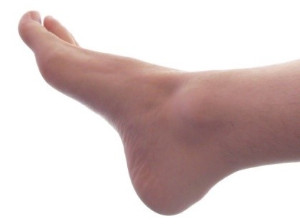 There are over 100 different varieties of HPV, or human papilloma virus. Nearly 12% of the global population have had warts at one time, and plantar warts are but one of these types. They all share one basic characteristic, they have the ability to infect skin cells. Many people, when they hear the term HPV, think that it refers to genital warts. But this is not the case, and HPV can manifest itself in many different forms. Plantar warts occur on the feet, typically on the palms or the soles. They can be flat or raised, and usually occur in dry, cracked areas of the foot. Treatments vary in scope and effectiveness. If you think you may have a plantar wart, talk to your podiatrist and go through the treatment options available.
There are over 100 different varieties of HPV, or human papilloma virus. Nearly 12% of the global population have had warts at one time, and plantar warts are but one of these types. They all share one basic characteristic, they have the ability to infect skin cells. Many people, when they hear the term HPV, think that it refers to genital warts. But this is not the case, and HPV can manifest itself in many different forms. Plantar warts occur on the feet, typically on the palms or the soles. They can be flat or raised, and usually occur in dry, cracked areas of the foot. Treatments vary in scope and effectiveness. If you think you may have a plantar wart, talk to your podiatrist and go through the treatment options available.
Plantar warts can be very uncomfortable. If you need your feet checked, contact Dr. Jordan Rachlin from Monroe Foot Care. Our doctor will assist you with all of your foot and ankle needs.
About Plantar Warts
Plantar warts are the result of HPV, or human papillomavirus, getting into open wounds on the feet. They are mostly found on the heels or balls of the feet.
While plantar warts are generally harmless, those experiencing excessive pain or those suffering from diabetes or a compromised immune system require immediate medical care. Plantar warts are easily diagnosed, usually through scraping off a bit of rough skin or by getting a biopsy.
Symptoms
- Legions on the bottom of your feet, usually rough and grainy
- Hard or thick callused spots
- Wart seeds, which are small clotted blood vessels that look like little black spots
- Pain, discomfort, or tenderness of your feet when walking or standing
Treatment
- Freezing
- Electric tool removal
- Laser Treatment
- Topical Creams (prescription only)
- Over-the-counter medications
To help prevent developing plantar warts, avoid walking barefoot over abrasive surfaces that can cause cuts or wounds for HPV to get into. Avoiding direct contact with other warts, as well as not picking or rubbing existing warts, can help prevent the further spread of plantar warts. However, if you think you have developed plantar warts, speak to your podiatrist. He or she can diagnose the warts on your feet and recommend the appropriate treatment options.
If you have any questions please feel free to contact our office located in Monroe, NY. We offer the newest diagnostic and treatment technologies for all your foot and ankle needs.
Read more about All About Plantar Warts
